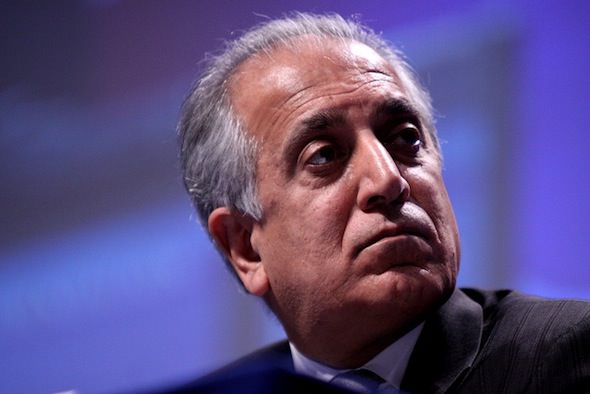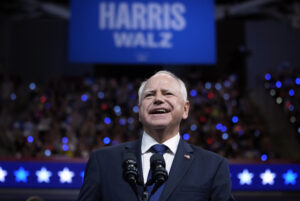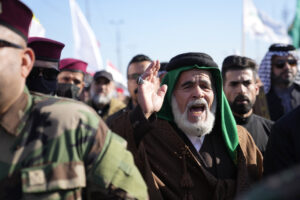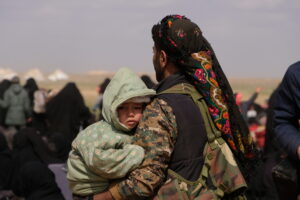Meet Zalmay Khalilzad, ‘A Primary Architect of Iraq’s Current Misery’
"As jihadists everywhere celebrate their stunning victories in Mosul and Tikrit," Andrew Cockburn writes at the website of Harper's Magazine, "we can only hope that they accord due credit to a man who was indispensable to their success."
“As jihadists everywhere celebrate their stunning victories in Mosul and Tikrit,” Andrew Cockburn writes at the website of Harper’s Magazine, “we can only hope that they accord due credit to a man who was indispensable to their success.”
That man is Zalmay Khalilzad. “Now an obscure businessman seeking crumbs from the table as an ‘international consultant,’ ” Cockburn states, “Khalilzad was in his day an imperial envoy sent by the United States to decree the fates of Afghanistan and Iraq. His decisions, most especially his selection of puppet overseers to administer the conquered lands, were uniformly disastrous, contributing in large degree to the catastrophes of today.”
A Muslim, Khalilzad was “promoted up the ranks of the national-security clerisy” by neoconservatives who saw that he was “ready to spout their militarist nostrums at the flutter of a giant check.” After serving their administrations in the 1980s and penning an “iconic” military text in the early ’90s, Khalilzad leapt from obscurity with the post-9/11 invasion and occupation of Afghanistan. “Resolutely failing upward,” Cockburn writes, he became U.S. ambassador to Iraq in 2005.
Here’s what Khalilzad did there:
[Khalilzad’s] signal accomplishment came in 2006, when, searching for a suitable candidate to replace Ibrahim al-Jaafari as prime minister, he summoned Nuri al-Maliki, a relatively low-ranking Dawa Party functionary who had spent much of his adult life in exile in Damascus (with an intervening spell in Tehran), where he subsisted on the earnings of a butcher shop he’d opened. Maliki’s party activities were largely related to security, and his experiences imbued him with a generally paranoid attitude to the outside world — not the best preparation for reconciling Iraq’s disparate sects and factions.
Nevertheless, Khalilzad thought Maliki was just the man to make piece with the Sunnis, crack down on Moqtada al-Sadr (whom the American government mistakenly believed to be an Iranian pawn), and stand up to the Iranians. Summoned by Khalilzad, Maliki was abruptly informed that he was to become prime minister. “Are you serious?” said the astonished erstwhile butcher. The British ambassador, William Patey, had been invited to attend the meeting but when he started to object to Maliki’s anointment, Khalilzad promptly kicked him out of the room.
True to form, all of Khalilzad’s presumptions about Maliki turned out to be wholly in error. So far from reconciling with Sunnis, Maliki went out of his way to alienate them, combining paranoia about the possibility of a neo-Baathist coup with an opportunistic calculation that heightened sectarian tension would bolster his support among Shia. He showed no sign of serving as the wished-for bulwark against Tehran, and, most importantly, evinced little interest in building a responsible administration. Instead, Iraqi government, never a model of probity, devolved into a midden of corruption in which every office, including those in the military, was for sale. By 2014, the going price for command of an Iraqi army division was reported to be around $1 million, payable over two years as the purchaser recouped his investment via fees levied at roadblocks and other revenue streams. Little wonder that when called on to fight the disciplined and ruthless ISIS, the Iraqi army has melted away.
— Posted by Alexander Reed Kelly.
Your support matters…Independent journalism is under threat and overshadowed by heavily funded mainstream media.
You can help level the playing field. Become a member.
Your tax-deductible contribution keeps us digging beneath the headlines to give you thought-provoking, investigative reporting and analysis that unearths what's really happening- without compromise.
Give today to support our courageous, independent journalists.








You need to be a supporter to comment.
There are currently no responses to this article.
Be the first to respond.